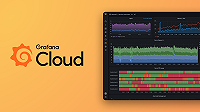loki.echo
loki.echo receives log entries from other loki components and prints them to the process’ standard output, stdout.
You can specify multiple loki.echo components by giving them different labels.
Usage
loki.echo "<LABEL>" {}Arguments
The loki.echo component doesn’t support any arguments.
Blocks
The loki.echo component doesn’t support any blocks.
Exported fields
The following fields are exported and can be referenced by other components:
| Name | Type | Description |
|---|---|---|
receiver | LogsReceiver | A value that other components can use to send log entries to. |
Component health
loki.echo is only reported as unhealthy if given an invalid configuration.
Debug information
loki.echo doesn’t expose any component-specific debug information.
Example
This example creates a pipeline that reads log files from /var/log and prints log lines to echo:
local.file_match "varlog" {
path_targets = [{
__path__ = "/var/log/*log",
job = "varlog",
}]
}
loki.source.file "logs" {
targets = local.file_match.varlog.targets
forward_to = [loki.echo.example.receiver]
}
loki.echo "example" { }Compatible components
loki.echo has exports that can be consumed by the following components:
- Components that consume Loki
LogsReceiver
Note
Connecting some components may not be sensible or components may require further configuration to make the connection work correctly. Refer to the linked documentation for more details.



